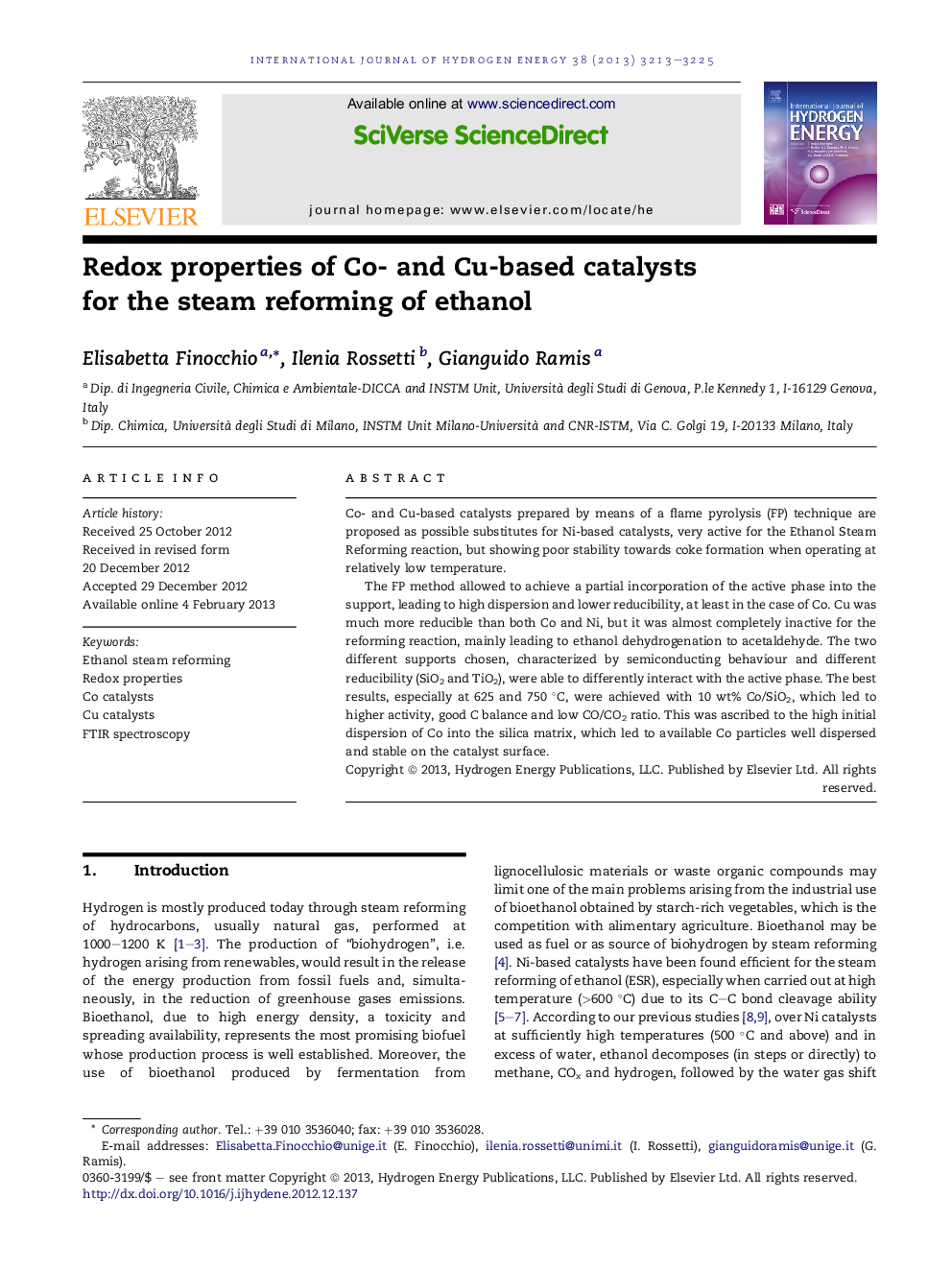| Article ID | Journal | Published Year | Pages | File Type |
|---|---|---|---|---|
| 1275736 | International Journal of Hydrogen Energy | 2013 | 13 Pages |
Co- and Cu-based catalysts prepared by means of a flame pyrolysis (FP) technique are proposed as possible substitutes for Ni-based catalysts, very active for the Ethanol Steam Reforming reaction, but showing poor stability towards coke formation when operating at relatively low temperature.The FP method allowed to achieve a partial incorporation of the active phase into the support, leading to high dispersion and lower reducibility, at least in the case of Co. Cu was much more reducible than both Co and Ni, but it was almost completely inactive for the reforming reaction, mainly leading to ethanol dehydrogenation to acetaldehyde. The two different supports chosen, characterized by semiconducting behaviour and different reducibility (SiO2 and TiO2), were able to differently interact with the active phase. The best results, especially at 625 and 750 °C, were achieved with 10 wt% Co/SiO2, which led to higher activity, good C balance and low CO/CO2 ratio. This was ascribed to the high initial dispersion of Co into the silica matrix, which led to available Co particles well dispersed and stable on the catalyst surface.
► Co- and Cu-based catalysts were prepared by Flame Pyrolysis on TiO2 and SiO2 supports. ► 10 wt% Co/SiO2 shows higher activity, good C balance, low CO/CO2 ratio in ESR reaction. ► IR and TPR data reveal reducible Co particles well dispersed on the catalyst surface. ► Very limited acidity contribute to the obtainment of satisfactory C balance.
